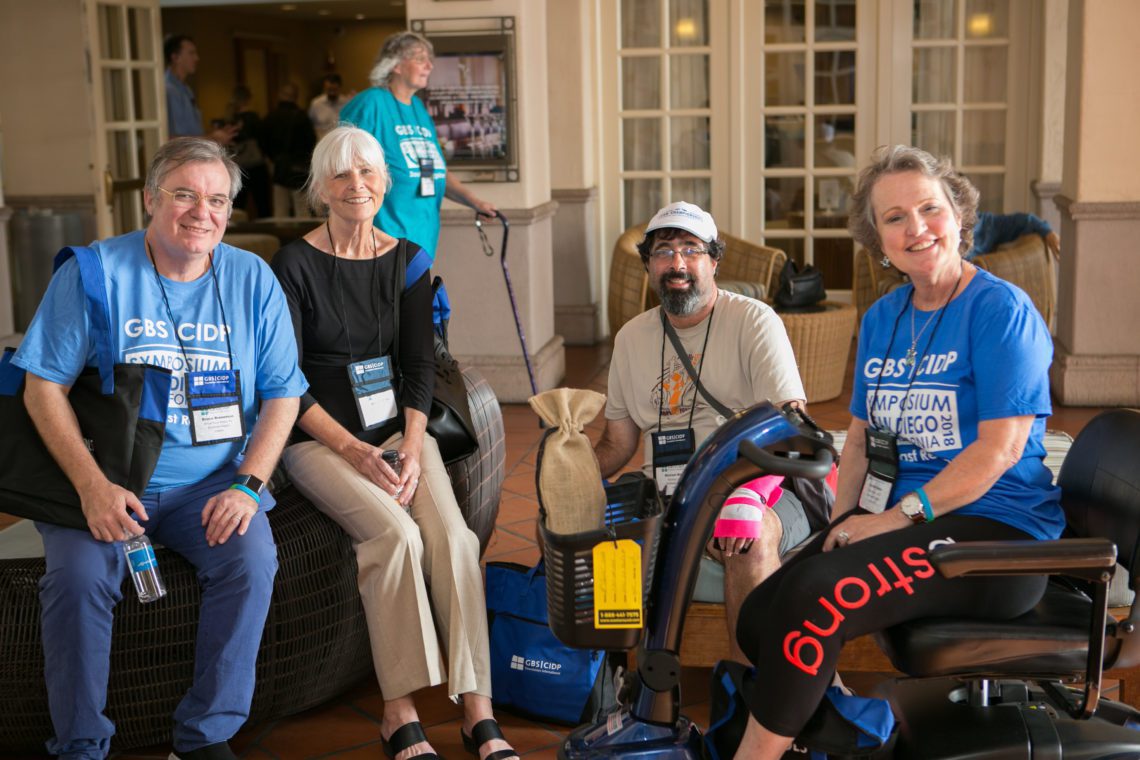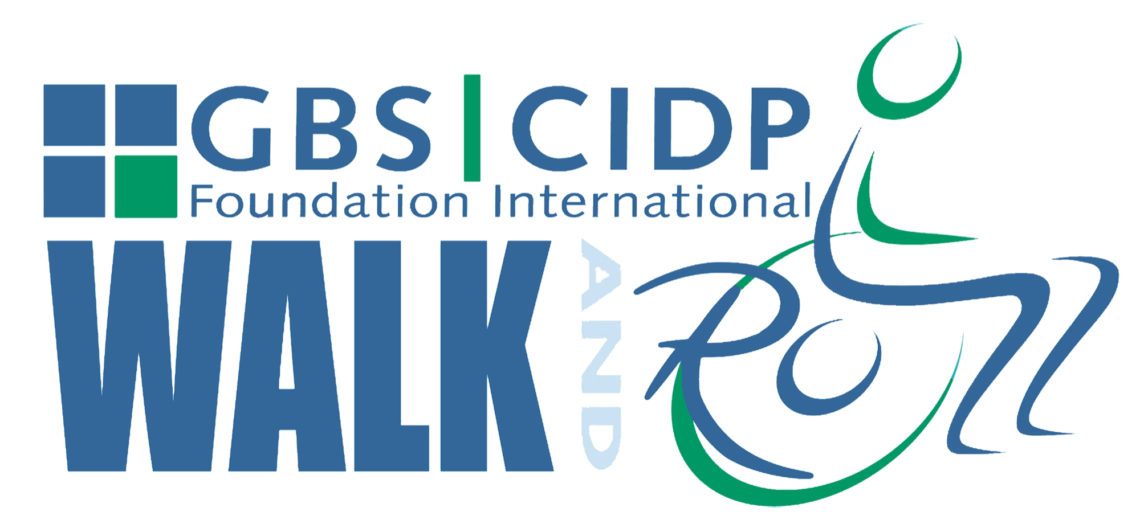
Topics
NORD, a 501(c)(3) organization, is a patient advocacy organization dedicated to individuals with rare diseases and the organizations that serve them. NORD was founded by patients and families who marshaled grass-roots efforts to secure the passage of the Orphan Drug Act in 1983. Today, NORD represents the united voice of more than 250 rare disease-specific groups and thousands of patient advocates. Together, we are committed to the identification, treatment and cure of rare disorders through programs of advocacy, education, research and patient support services. Learn more about NORD at https://rarediseases.org/.
Founded in 1980, The GBS | CIDP Foundation International is a global nonprofit organization supporting individuals and their families affected by Guillain-Barre’ syndrome (GBS), chronic inflammatory demyelinating polyneuropathy (CIDP), and related conditions through a commitment to support, education, research and advocacy. Learn more about programs, events, educational resources and support.
The registry is maintained by NORD who hosts the registry on its cloud-based Platform and provides oversight and ongoing support of the system. GBS|CIDP Foundation International provides the day-to-day management of their patient registry, including the development and adherence to the study procedures.
One of the goals of this registry is to gather and disperse GBS|CIDP information as quickly and securely as possible. In agreement with the standards set by NORD and the IRB, we plan to share de-identified data with any researcher who asks for it for a legitimate reason. The GBS|CIDP Foundation International in collaboration with the GBS|CIDP Foundation Patient Registry Advisory committee comprised of members of the GBS|CIDP Global Medical Advisory Board, clinical and research experts, will review requests for access to de-identified data from researchers. Investigators wanting to use the registry or contact participants will need to apply to the GBS|CIDP Foundation Patient Registry Advisory Committee. The application will require information concerning: Principal Investigator, aims and hypotheses of the proposed research, and where the research will be performed, and how the research will be funded. The GBS|CIDP Patient Registry Advisory Committee will review and approve applications based on study quality, potential, and value to GBS|CIDP and variants of the condition.
The identifiable and de-identifiable data are owned by the study sponsor, GBS|CIDP Foundation International. GBS|CIDP Foundation International decides how and with whom to share the data. A subset of the de-identified data collected across the NORD Registry Platform is available to NORD to support cross disease analysis and advocacy activities to members of the rare disease community as a whole.
There are no risks of physical harm associated with participation in the study. Participation in the GBS|CIDP Patient Registry does involve the potential risks of a breach of confidentiality of medical information and associated privacy of participants. Such risks will be minimized by ensuring adherence to applicable regulations and data security measures and by performing the following:
- removing direct participant identifiers from information and data shared or released from the registry;
- limiting access to linking codes assigned to the GBS|CIDP Patient Registry information;
- and limiting access to information contained within the GBS|CIDP Patient Registry to registry investigators and researchers approved by the Advisory Board, and
- Maintaining the Privacy and Confidentiality of Registry information.
Yes, the data is safe. The registry follows strict government guidelines to assure patient information is protected. The platform is served over HTTPS, which provides traffic encryptions so as to prevent eavesdropping and man-in-the-middle attacks. Communications between the registry platform application server and the database are also encrypted.
The data is stored on NORD’s registry platform system which adheres to industry standards regarding security protections.
The patient registry uses an online platform which allows participants to contribute data from anywhere in the world.
30-45 minutes, to complete all surveys. However you can log off and log back in to take the surveys in your own timeframe. As new surveys are posted in the future, the registrant will be notified.
This registry will be open for five years with the option to renew registration. There is no date of termination or closure at this time.
There is no cost to the patient to join this study. The GBS|CIDP Foundation International absorbs the cost of the registry for its members.
A patient registry is a collection of standardized information about a group of patients who share a condition and is used for a variety of purposes such as conducting natural history studies and supporting disease specific clinical trial recruitment.
The Office for Human Research Protections (OHRP) states that, “…the informed consent process is the critical communication link between the prospective human subject and an investigator beginning with the initial approach of an investigator to the potential subject (e.g. through a flyer, brochure, or any advertisement regarding the research study) and continuing until the completion of the research study. […] The informed consent process involves three key features:
- disclosing to potential research subjects information needed to make an informed decision;
- facilitating the understanding of what has been disclosed; and
- promoting the voluntariness of the decision about whether or not to participate in the research.”4
A legally authorized representative is an individual who, under law, has the ability to act on behalf of another person (such as a minor study participant). The LAR may be a parent, grandparent, caregiver who has the legal authority to grant consent on behalf of another who has been invited to participate in research.
A reporter/respondent is an individual who completes the surveys on behalf of the patient/study participant, when they are unable to do so on their own behalf.
A study participant is the individual who takes part in a research study and whose information is collected for that research. Study participants may consent to enter and share their own personal data.
Data is collected through a secure web-based system developed by the National Organization for Rare Disorders (NORD), an independent non-profit committed to the identification, treatment, and cure of all 7,000 rare diseases. Study participants respond to questions grouped within a series of surveys developed per study standards and in collaboration with disease specific experts.
The data collected is uniform and includes but is not limited to:
- Socio-demographics
- Medical and diagnostics
- Treatment and disease progression
- Management of care
- Quality of life
One of the most important purposes of the GBS|CIDP Patient Registry is to bring the GBS|CIDP community together and collect data which could be used to create therapeutics and improve the quality of life for patients. Some other goals of the GBS|CIDP Patient Registry are to:
- Conduct a prospectively-planned natural history study that will result in the most comprehensive understanding of GBS|CIDP and variants of the condition, and its progression over time.
- Characterize and describe the GBS|CIDP population as a whole.
- Assist the GBS|CIDP community with the development of recommendations for standards of care.
- Assist researchers studying the pathophysiology of GBS|CIDP and variant of the condition.
- Assist researchers studying interventional outcomes.
- Support the design of clinical trials for new treatments.
According to the Mayo Clinic an IRB is, “[a] specifically constituted review body established to protect the rights and welfare of human subjects recruited to participate in biomedical or behavioral/social science research.”3 The oversight of an IRB ensures that, an online natural history study that collects and shares patient data to advance rare disease research, is ethical and safe.
The Principal Investigator is the research group leader or, the person with the primary responsibility for the design and conduct of the research project or study.
The National Health Service defines a study sponsor as, “…the individual, company, institution or organization, which takes on ultimate responsibility for the initiation, management […] of and/or financing […] for that research.”2 The Study Sponsor ensures that the study is conducted in a reputable manner and upholds regulations as they apply to the study.
According to the British Medical Journal, a longitudinal study follows subjects, “…over time with continuous or repeated monitoring of risk factors or health outcomes, or both. […] Most longitudinal studies examine associations between exposure to known or suspected causes of disease and subsequent morbidity or mortality.”1 Longitudinal research projects can extend over years or even decades.
A natural history study is a study designed to track the course of a disease over time and includes people who have a specific medical condition or disease and those who are at risk of developing such. This method of research explores the disease in a comprehensive way and identifies demographic, genetic, environmental, and other variables that correlate with the disease and its outcomes. Natural history studies have many potential uses such as patient care best practice developments and clinical trial recruitment.

